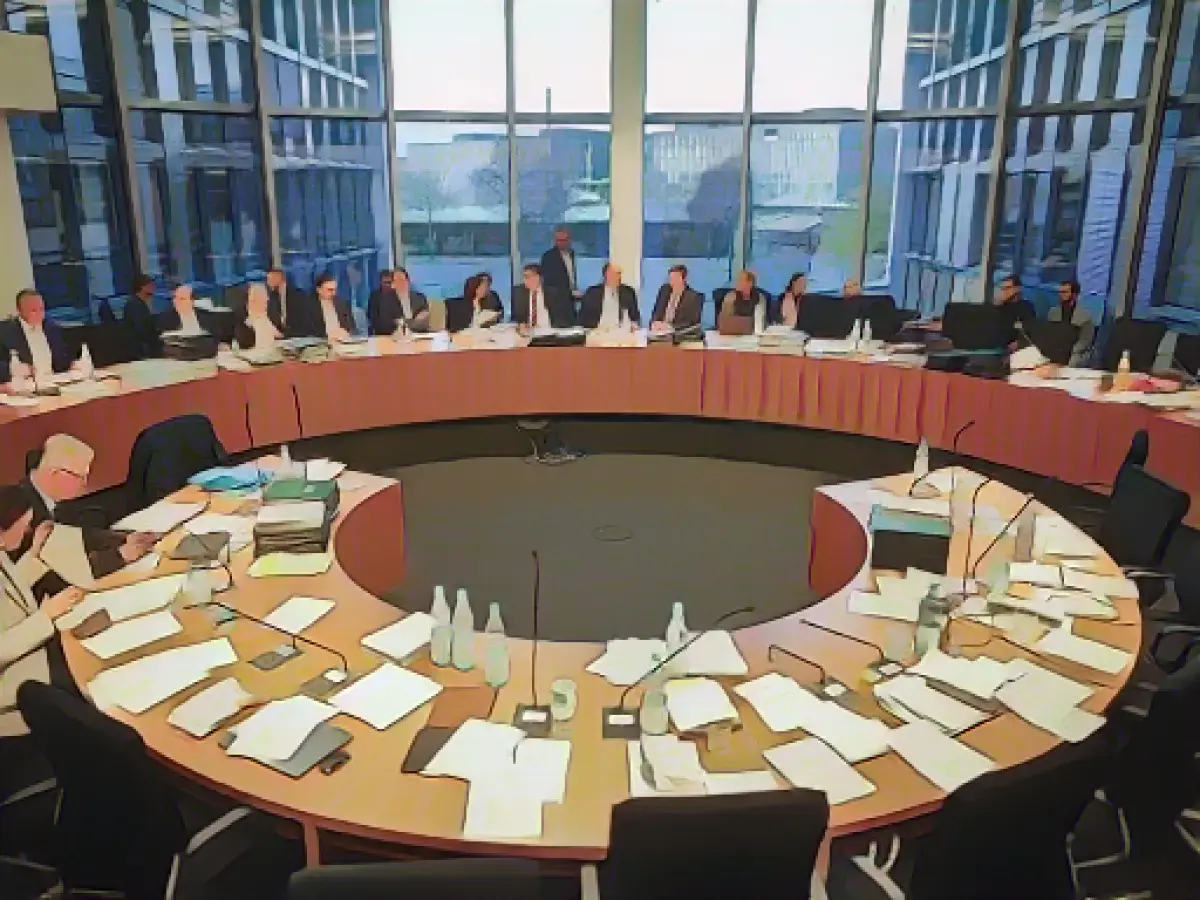Traffic light seeks solution to budget crisis
The coalition government is arguing about the conclusions to be drawn from the Federal Constitutional Court's budget ruling. Green politicians spoke out in favor of changes to the debt brake. SPD party leader Saskia Esken even argued that the debt brake should not be applied in 2023 and 2024.
The FDP, on the other hand, does not want to touch the debt brake and instead put social benefits to the test - they also once again opposed tax increases. SPD leader Lars Klingbeil warned against a halt to modernization in Germany.
In its ruling on Wednesday, the Federal Constitutional Court in Karlsruhe prohibited the subsequent reallocation of coronavirus loans for climate protection and the modernization of industry. As a result, 60 billion euros are missing from the so-called Climate and Transformation Fund, a special fund that is economically separate from the core budget. The big question is how the traffic light coalition will plug this financial hole.
SPD and Greens against drastic savings
Klingbeil told the German Press Agency: "The decision of the Federal Constitutional Court must not lead us to stop modernizing our country. It is about jobs and ensuring that we remain a strong business location." Investments and planning security are needed to bring the country up to speed. "Germany has rested too much on the status quo in recent years. We feel this every day when trains don't run or bridges don't hold up," said the SPD party leader.
Green Party leader Ricarda Lang also made it clear on Sunday evening on the ZDF program "Berlin direkt" that she thinks little of a strict austerity course. The logic that the belt must now be tightened will not work in the end. "Because we would be saving ourselves into an economic and therefore also a social crisis in this country." Cutting back on social issues in particular is not a good idea, as the government must also maintain social cohesion. "We know that right-wing parties in particular are constantly mobilizing people's social concerns and fears."
When asked about the Greens' priorities for making savings, Lang said: "We can talk about climate-damaging subsidies." The Federal Environment Agency (UBA) had pointed out that environmentally harmful subsidies amounted to at least 65 billion euros in 2018 - more recent data is not available.
FDP wants to review social benefits
On the other hand, FDP parliamentary group leader Christian Dürr told the Funke media group that the coalition must also discuss where the welfare state can make its contribution to budget consolidation. "The fact is that money must first be generated before it can be distributed." Tax increases, on the other hand, are the wrong way to stimulate the economy and make Germany competitive again as a business location.
Reform or abolish the debt brake
Green parliamentary group leader Katharina Dröge spoke out in favor of changes to the debt brake. "We Greens have been campaigning for many years for the debt brake to be reformed, as it is economically ill-conceived," she told the Tagesspiegel newspaper. The rule slows down necessary investments and is "in its current form a burden for Germany as a business location". It is now also becoming apparent that the debt brake is not flexible enough to properly support people and companies, even in times of crisis.
The debt brake enshrined in the Basic Law only gives the federal government limited scope for borrowing. Exceptions are permitted in the event of natural disasters and exceptional emergencies, such as the recent coronavirus pandemic and the war in Ukraine. The debt brake is one of the FDP's key election promises, but it is controversial in parts of the Greens and SPD.
Federal Finance Minister and FDP party leader Christian Lindner told Bild am Sonntag: "The new legal clarity is no reason to weaken the debt brake, but to strengthen it."
Union adheres to debt brake
The opposition CDU/CSU warned the governing coalition against suspending the debt brake. "The only emergency we have is a political emergency caused by the federal government itself," CDU/CSU chief budget officer Christian Haase told the Funke Mediengruppe newspapers. "But there is no economic emergency, because otherwise the federal government would have had to declare it shortly after its fall forecast in October."
- The Green politicians are advocating for adjustments to the debt brake in the context of household finances, seeing it as an opportunity to invest in climate protection and modernization projects, rather than adhering strictly to the rule during the next two years.
- In an effort to address the financial shortfall resulting from the Federal Constitutional Court's ruling, parties within the traffic light coalition, such as the SPD, are considering the possibility of reevaluating certain environmental subsidies, which could amount to over 60 billion euros, to bridge the budget gap.
- To ensure a balanced approach to fiscal policy, the FDP suggests reviewing social benefits as a means to contribute to budget consolidation, acknowledging the importance of generating revenue before distribution, which would indirectly impact household finances and potential parties.
Source: www.dpa.com








